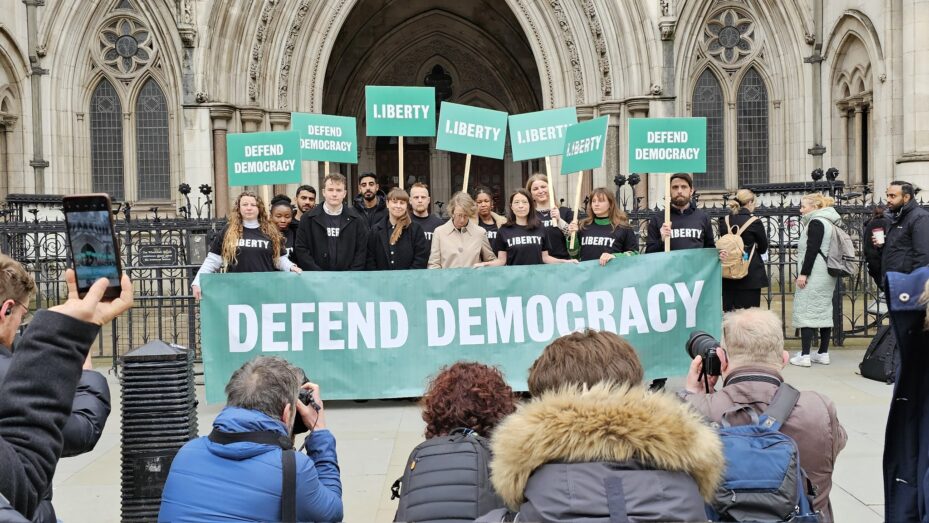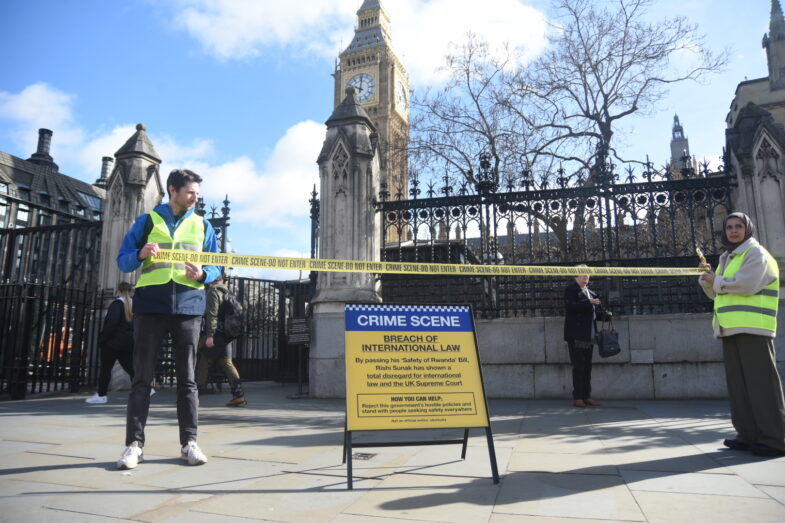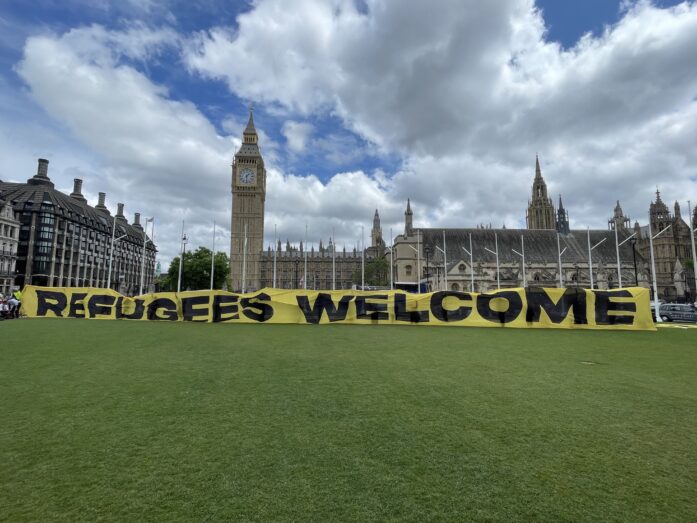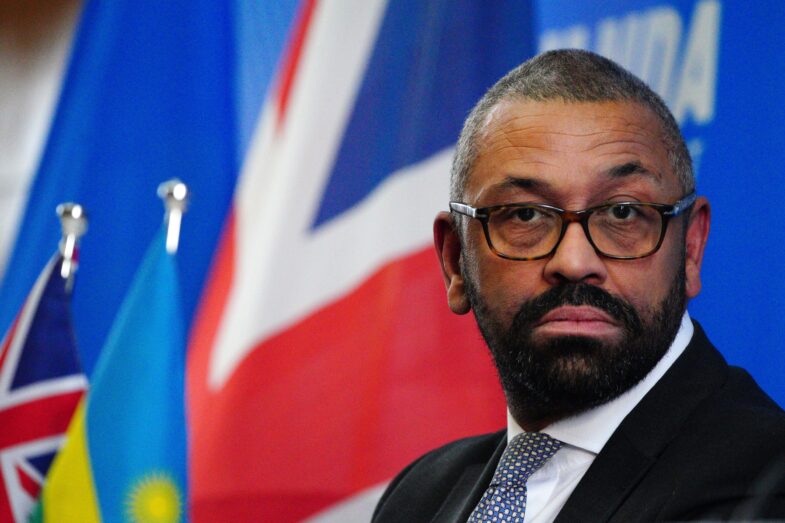Article 8 /
A private and family life
Nobody should be able to secretly watch what we’re doing without good reason – and we have the right to enjoy a family life in the way we choose.
Article 8 of the Human Rights Act protects our privacy, our family life, our home and our communications.
It’s been used by families who’ve been unlawfully spied on by councils, won crucial rights for LGBT+ and trans people and defended our fundamental freedoms in the face of increasingly authoritarian mass surveillance.
It means the State must not interfere with your right to privacy – though this can be limited in certain circumstances.
Your private life
The right to a private life protects your dignity and autonomy (your right to be independent and make your own decisions about your life).
That includes:
- respect for your sexuality
- the right to personal autonomy and physical and psychological integrity (this right means you must not to be physically or psychologically interfered with)
- respect for your private and confidential information, including the storing and sharing of data about you
- the right not to be subject to unlawful state surveillance
- the right to control the spreading of information about your private life, including photographs taken covertly.
Your family life
There’s no set model of a family or family life. It includes any stable relationship – like those between romantic partners, parents and children, siblings or grandparents and grandchildren.
People often depend on this right when the State tries to separate family members – for example, by taking children into care or deporting somebody.
Respect for your home
You have a right not to have your home life interfered with, including by unlawful surveillance, unlawful entry and evictions which don’t follow a proper process.
Respect for your correspondance
You have the right to uninterrupted and uncensored communication with others – a right that’s particularly relevant when challenging phone tapping and the reading of your private communications.
Limitations
Article 8 can be limited in certain circumstances – but any limitation must balance the interests of an individual and of the community as a whole.
In particular, any limitation must be:
- covered by law
- necessary and proportionate
- for one or more of the following purposes:
- public safety or the country’s economic wellbeing
- prevention disorder or crime
- protecting health or morals
- protecting other people’s rights and freedoms.
- national security.
Balancing rights
The right to privacy must often be balanced against the right to free expression.
Public figures don’t necessarily enjoy the same privacy as other people do – sometimes public interest might justify publishing information about them that would otherwise interfere with the right to privacy.
Article 8 in action
I'm looking for advice on this
Did you know Liberty offers free human rights legal advice?
Did you find this content useful?
Help us make our content even better by letting us know whether you found this page useful or not





